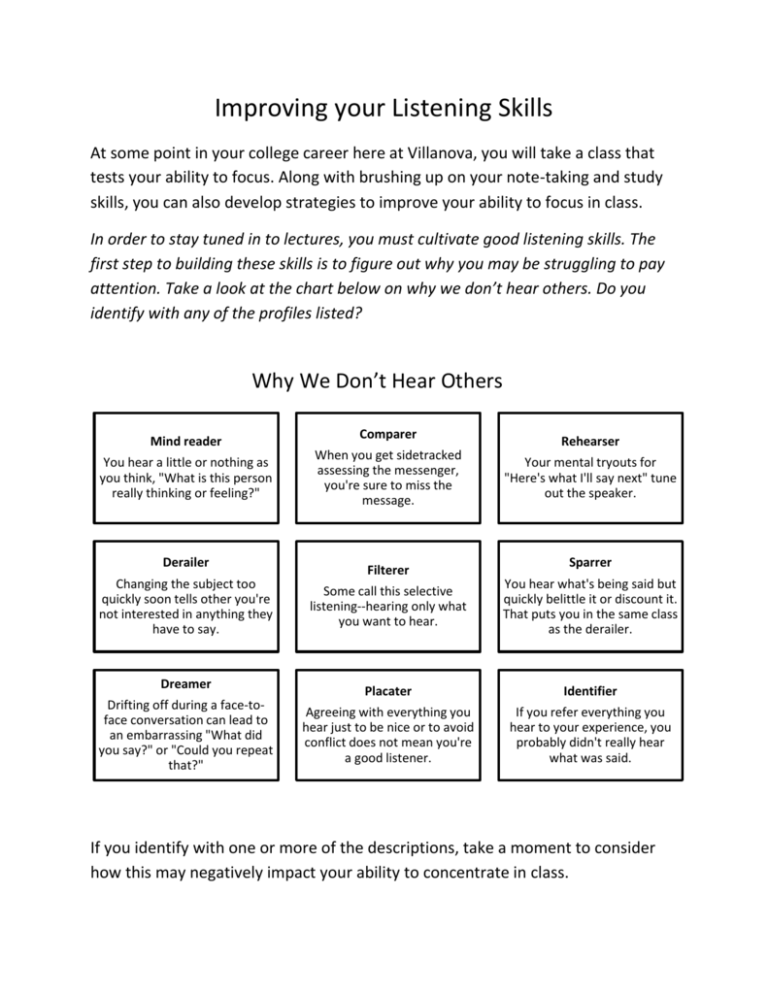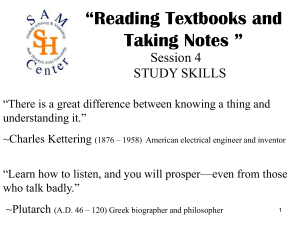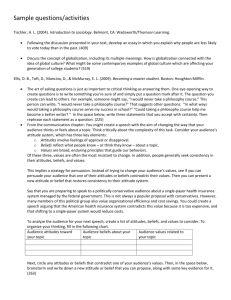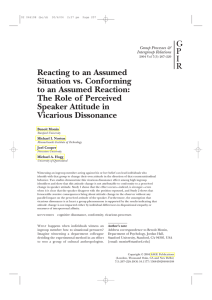Listening Skills
advertisement

Improving your Listening Skills At some point in your college career here at Villanova, you will take a class that tests your ability to focus. Along with brushing up on your note-taking and study skills, you can also develop strategies to improve your ability to focus in class. In order to stay tuned in to lectures, you must cultivate good listening skills. The first step to building these skills is to figure out why you may be struggling to pay attention. Take a look at the chart below on why we don’t hear others. Do you identify with any of the profiles listed? Why We Don’t Hear Others Mind reader You hear a little or nothing as you think, "What is this person really thinking or feeling?" Derailer Changing the subject too quickly soon tells other you're not interested in anything they have to say. Dreamer Drifting off during a face-toface conversation can lead to an embarrassing "What did you say?" or "Could you repeat that?" Comparer When you get sidetracked assessing the messenger, you're sure to miss the message. Filterer Rehearser Your mental tryouts for "Here's what I'll say next" tune out the speaker. Sparrer Some call this selective listening--hearing only what you want to hear. You hear what's being said but quickly belittle it or discount it. That puts you in the same class as the derailer. Placater Identifier Agreeing with everything you hear just to be nice or to avoid conflict does not mean you're a good listener. If you refer everything you hear to your experience, you probably didn't really hear what was said. If you identify with one or more of the descriptions, take a moment to consider how this may negatively impact your ability to concentrate in class. Now, rate to what degree the following factors influence your ability to listen. Factor Interest in the topic Attitude toward the speaker Rate and style of the speaker Distractions from people nearby Familiarity with the topic and terminology Length of lecture Personal connection to material Personal learning style Personal physical and emotional level at the time of the lecture Not at all Somewhat Greatly For each factor that greatly influences your ability to listen, brainstorm some ways you can use that factor to help you concentrate. Interest in topic When possible, take classes that spark your interest. Talk to your advisor and choose your area of focus carefully. Attitude toward the speaker You are in control of your attitude! If this is an important factor, do what you can to create a positive attitude toward the class and professor. Go and speak to your professor during office hours if you have unresolved issues regarding the class. Rate and style of the professor You cannot control your professor’s lecture style, but you can acquire strategies to adapt. Develop a note-taking system that allows you to go back and fill in information you did not get during the lecture. Distractions from people nearby If you are easily distracted by your peers, select a seat in the front row away from distractions. Familiarity with the topic and terminology If unfamiliar terminology throws you off, consider how you can best prepare for class. Does the professor offer lecture topics in the syllabus? If so, be sure to read the section in the textbook prior to class. Does the professor use PowerPoint? Try printing out the slides and annotating them throughout the lecture. Length of lecture If you struggle to pay attention for longer than an hour, do your best to sign up for classes that meet frequently for shorter periods of time. If you do have to take longer classes, figure out what you need—a snack, a short break, a stress ball—to keep focused. Personal connection to material Some students are more likely to pay attention when they can relate to the material. As long as you remain open to what is being lectured about, take notes on the material and the personal connections that come to mind. Personal learning style Come to an LSS workshop to discover your learning style and find out the best ways to study and stay tuned in during lectures. Personal physical and emotional level at the time of the lecture If you are tired, sick, or stressed out, you will have a more difficult time concentrating in class. Take care of yourself. Be sure to get a good night’s sleep and eat breakfast in preparation for class. Wong, L. (2000). Understanding Listening Skills. In Essential Study Skills (3rd ed., p. 181-182). New York: Houghton Mifflin Company. Berko, R. M., Wolvin, A. D., & Wolvin, D. R. (1998). Communicating (7th ed.).Houghton Mifflin Company. Original source of "Why We Don't Hear Others"











